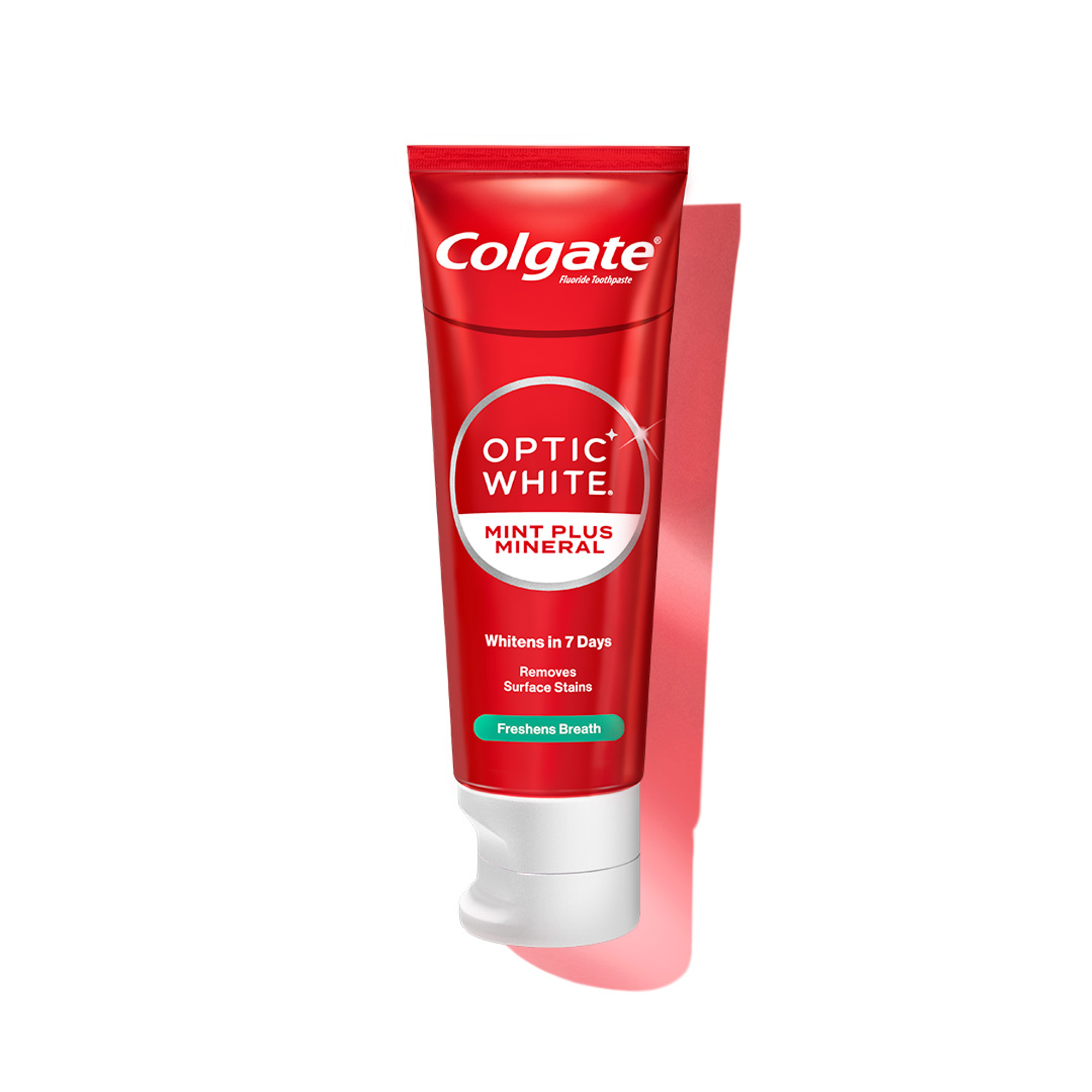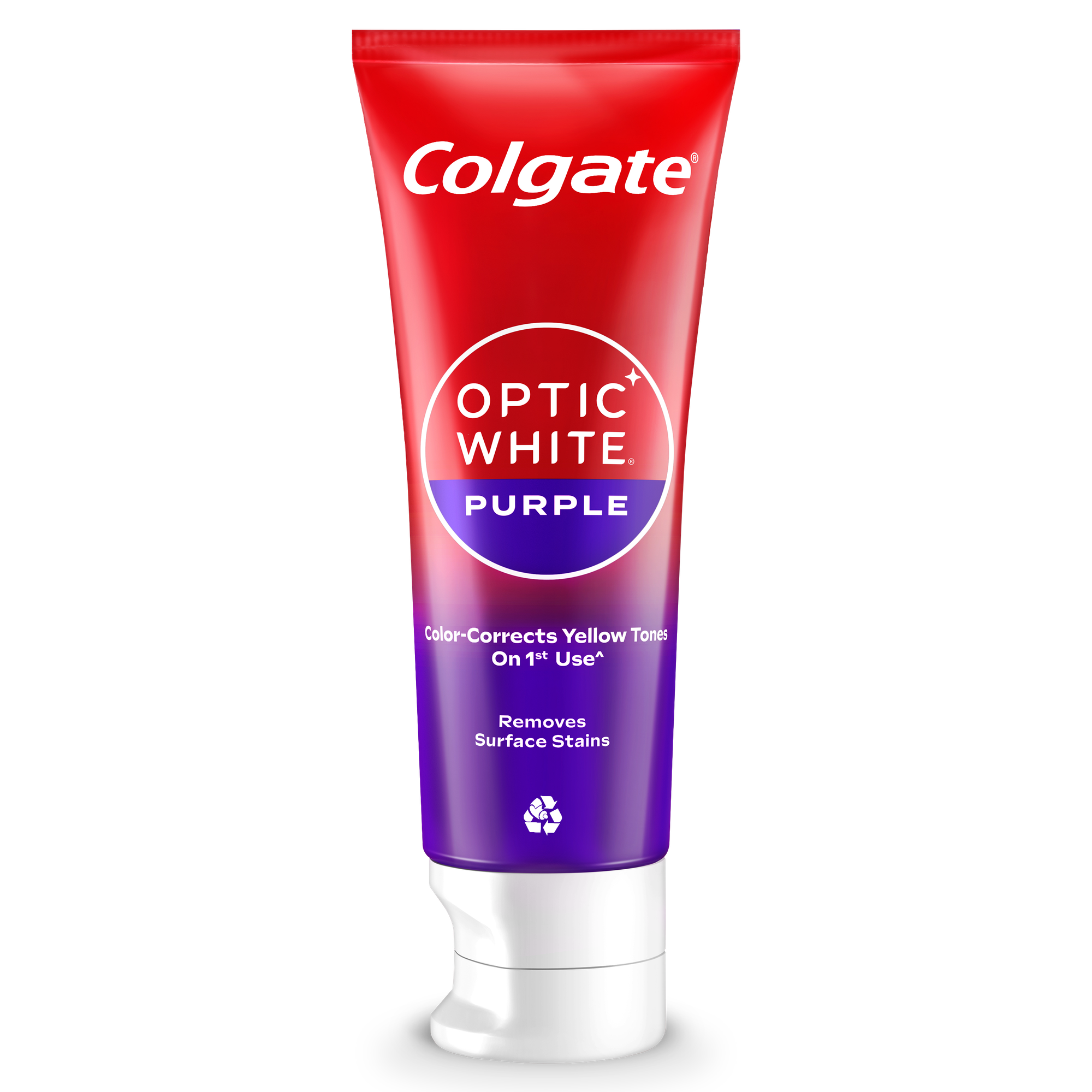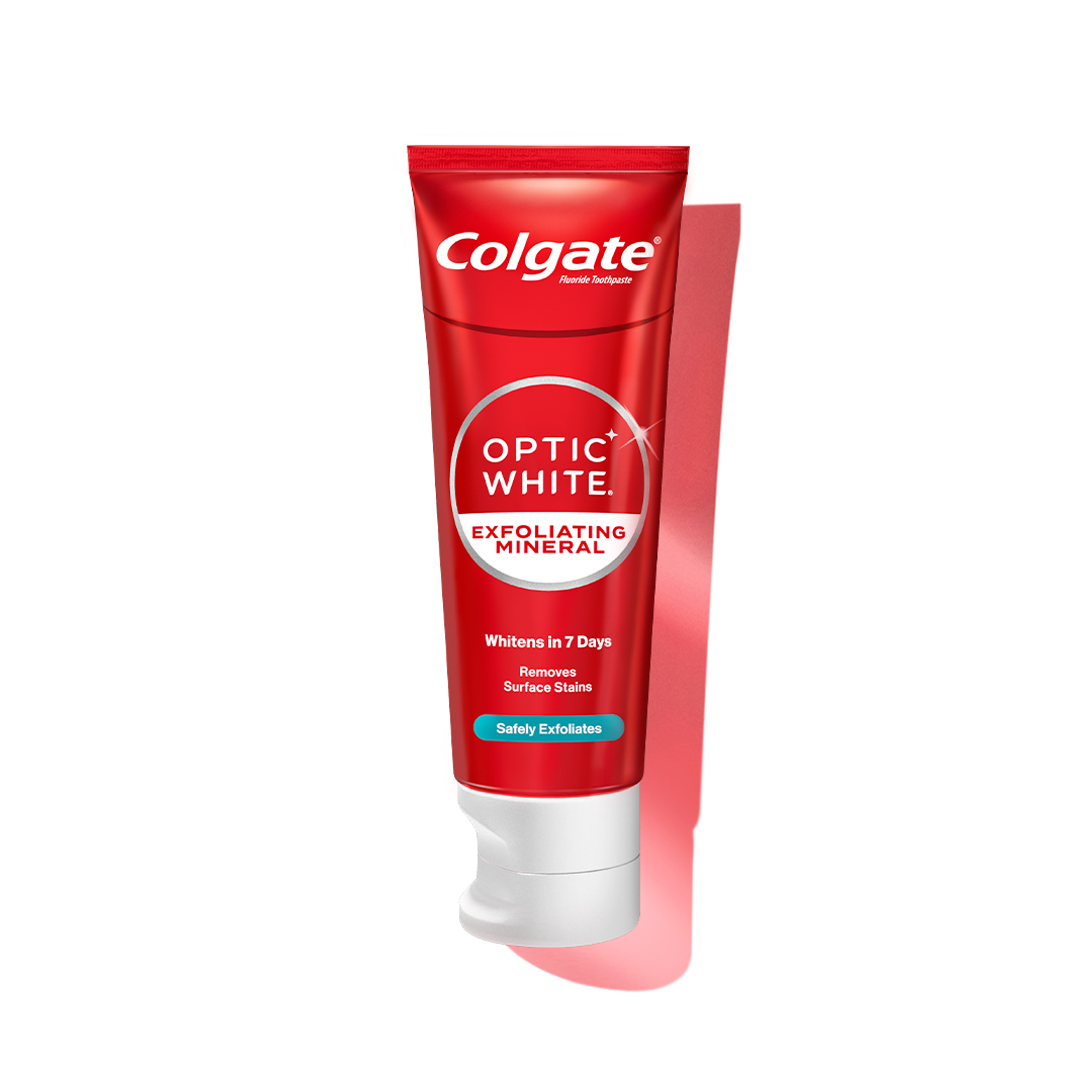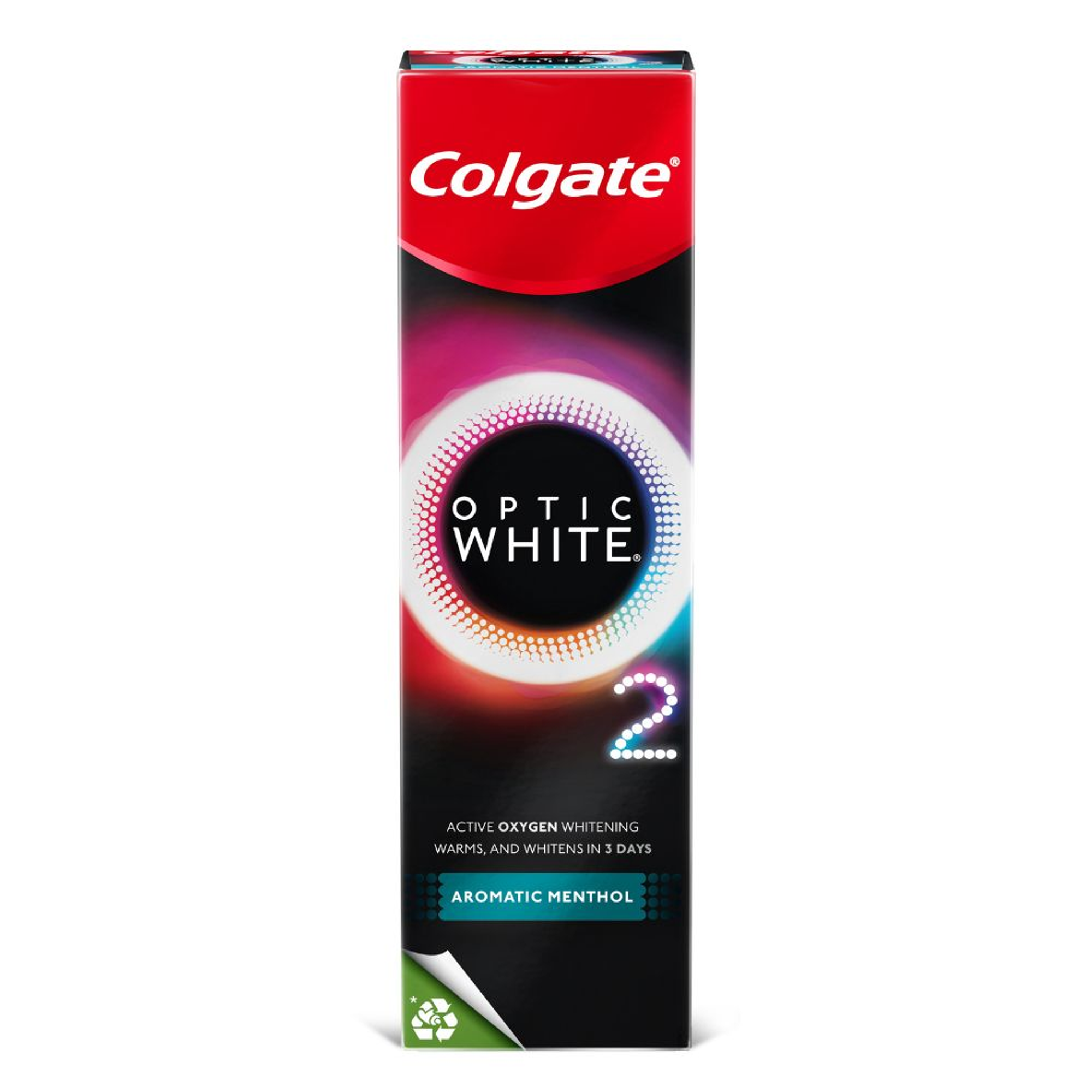But is baking soda bad for your teeth? Does it whiten them? Read on to learn how baking soda works and how people use it. Discover its advantages and disadvantages, and safe alternatives to having a bright smile.
Is Baking Soda Good for Teeth Whitening?
Baking soda (sodium bicarbonate) is a type of salt found in most households. As it is a mild abrasive, many DIY teeth whitening hacks with baking soda have grown to become popular home remedies to help make teeth look cleaner and brighter. In fact, some whitening toothpastes use baking soda as an active ingredient.
Now, you may wonder, is baking soda harmful for teeth? Though these teeth whitening hacks with baking soda are popular, they are often not scientifically backed for safety and effectiveness. If used frequently or in excess, it can wear down the tooth enamel, the hard outer surface of teeth, causing tooth sensitivity. So, is baking soda toothpaste safe? While whitening dentifrices or toothpaste carefully designed by experts can offer safer results, it is best to consult a dentist to know which teeth whitening product or treatment is best for your oral conditions.
How Does Baking Soda Whiten Teeth?
The stains on your teeth may be extrinsic (stains on the enamel) or intrinsic (deeper stains on the dentine beneath the enamel). Furthermore, teeth may also turn yellow due to the wearing down of enamel as you age. Teeth whitening methods typically work in two ways:
Bleaching with peroxides (hydrogen peroxide or carbamide peroxide)
Using abrasives to remove stains
So, how does baking soda whiten teeth? Baking soda is an abrasive that helps scrub away surface stains when rubbed against the enamel, the hard outer surface of teeth. It can help with mild extrinsic stains from pigmented food and drinks, like tea, coffee, red wine and berries.
However, baking soda and teeth whitening methods using it are less effective on intrinsic stains beneath the enamel. These stains often require advanced methods such as bleaching, best supervised by a dental professional. A dental visit is crucial to diagnose the type and severity of the tooth stain, which can help determine the best whitening treatment for you.
How to Use Baking Soda for Teeth Whitening at Home
When considering how to whiten teeth with baking soda at home, many people consider DIY remedies. They often combine baking soda with other kitchen staples, such as coconut oil, lemon, salt and water. These concoctions are usually in the form of a paste used for brushing teeth or as a mouthwash for rinsing. While their safety and effectiveness are debatable and still being studied, these popular methods include:
Baking Soda Paste
They are thick mixtures that many consider for brushing directly onto the teeth. People often prepare a paste of baking soda with the following items:
Water: Some people consider brushing with baking soda by making a thick paste using equal parts of water. It is a classic remedy believed to remove surface stains.
Coconut Oil: You may wonder, “Does baking soda and coconut oil whiten teeth?” A creamy paste of baking soda and coconut oil is commonly used for oil pulling. It is believed to have mild whitening and antibacterial effects.
Salt: Some people consider teeth whitening with baking soda and salt, as the grainy mixture is believed to add extra abrasiveness. However, caution is necessary as overuse can irritate the gums.
Lemon: Mixing baking soda and lemon juice into a paste is believed to give a temporary whitening effect. However, baking soda lemon teeth whitening methods may not be safe, as the acidic mixture can erode the enamel.
Baking Soda Rinse
This classic DIY solution is made by mixing a quarter teaspoon of baking soda in a cup of warm water to swish in the mouth and spit out. You may wonder, “Does rinsing with baking soda whiten teeth?” It is known to neutralise acids and refresh breath, however, evidence of its stain-lifting effects is limited.
Some also create a teeth whitening mixture with baking soda by combining baking soda and peroxide to whiten teeth or preparing a homemade coconut oil baking soda hydrogen peroxide toothpaste. However, as you consider how to whiten teeth with hydrogen peroxide and baking soda, it is important to look at the limitations of these remedies:
They lack scientific proof and can likely cause side effects.
You may not be able to measure the ingredients correctly on your own.
The remedy may irritate your gums or damage the enamel.
Advantages and Disadvantages of Baking Soda for Teeth Whitening
Baking soda and teeth whitening are often linked due to the mild abrasiveness of the compound. While using baking soda to whiten teeth helps with surface stain removal, inappropriate use can cause side effects. Baking soda teeth whitening methods have both pros and cons that are worth knowing before trying them on your teeth.
Advantages
Many people consider using baking soda seeking the following advantages:
Natural Whitening: Baking soda’s mild abrasiveness can help lift surface stains from coffee or tea. This results in naturally cleaner and brighter teeth.
Budget-friendly: Baking soda is a common kitchen staple. Hence, many consider it a low-cost option to whiten teeth over professional treatments and products.
Quick Results: People often notice whitening results in a few days to a couple of weeks. While considering how fast does baking soda whiten teeth, mild stains usually fade within a few days.
Neutralises Acids: Baking soda helps balance the pH level in your mouth by neutralising acids. This helps protect the enamel from erosion and supports plaque control.
Disadvantages
Despite the benefits, the teeth whitening remedies baking soda offers come with risks and drawbacks. They include:
Risk of enamel damage: Excess or frequent use of baking soda can damage the enamel, resulting in sensitive teeth. Applying too aggressively or using highly acidic combinations like lemon mixtures can also harm the enamel.
Gum irritation: The rough texture of some mixtures can irritate the gums.
No dramatic results: Home remedies are usually effective on mild surface stains. They do not work on deeper or intrinsic stains beneath the enamel. So you may not get the dramatic whitening results similar to professional treatments and products.
Not dentist-approved for regular use: Dentists often do not recommend using baking soda regularly. Baking soda dentifrices like toothpaste may be safe when used sparingly under supervision.
Other Alternatives to Baking Soda for Teeth Whitening
Though many use baking soda and teeth whitening remedies, they are not the only solution to get whiter teeth. From over-the-counter products to professional teeth whitening, there are several ways to brighten your smile safely and effectively. Whether you are seeking the convenience of home remedies or dramatic whitening results, there is a solution for everyone.
Natural Alternatives
If you are seeking natural teeth whitening alternatives to baking soda, it all boils down to proper dental care and good oral hygiene. Brushing twice daily with a fluoride toothpaste helps remove food residues before they stain your teeth. Flossing once daily is crucial to remove plaque from hard-to-reach areas before it hardens into tartar. Having the habit of rinsing your mouth with water after consuming pigmented food and drinks can also help reduce teeth staining.
Some people pair their regular oral care with natural home remedies such as coconut oil pulling, an ancient practice believed to help reduce harmful bacteria in the mouth. However, evidence of its effectiveness and safety is limited. Hence, it is better to use home remedies with caution or consider store-bought whitening products instead.
Over-the-Counter Alternatives
Over-the-counter teeth whitening products offer a safe and effective option to whiten your teeth from the comfort of your home. Unlike natural remedies, they are usually designed by professionals and contain whitening agents that brighten your smile when used regularly as directed. Pairing these products with daily oral care can go a long way in keeping your smile bright and healthy. They include:
Whitening toothpaste: Contains mild abrasives or whitening agents that help remove surface stains. Advanced formulas like Colgate Optic White O2 can go beyond the enamel to lighten deeper stains with regular use as directed. If you want an instant glow to your smile, Colgate’s colour-correcting Purple Toothpaste can offer a temporary whitening effect.
Whitening strips: They are easy to wear on teeth and include a gel with lower concentrations of bleaching agents like hydrogen peroxide.
Whitening pens: Great for on-the-go touch-ups. These whitening pens contain whitening serum that can be easily applied on the teeth.
LED whitening kits: These usually combine a whitening pen with an LED light device to speed up stain removal.
For dramatic whitening results, professional whitening treatments are a great choice. They work on deeper stains to give you a brighter smile in typically a visit or two. Moreover, they are safe and effective without side effects. The Singapore Dental Association recommends having a dentist examine your mouth to determine the best whitening treatment for you. They can also address potential oral health issues before whitening treatments.
When to Avoid Baking Soda
Baking soda may not be safe for everyone. Excess use of baking soda can wear down the enamel and irritate the gums. Always consult your dentist before trying any whitening remedies at home. It is best to skip baking soda if you:
Have sensitive teeth, gum disease or tooth decay.
Wear dental appliances like braces.
Baking soda and teeth whitening often go hand in hand in many DIY remedies. While many consider it a cheap and easy alternative to remove surface stains, baking soda teeth whitening results are limited to mild surface stains and may cause damage with excessive use. For safe and lasting results, it is always best to use over-the-counter products like a whitening toothpaste or consult a dentist to find out what is the best treatment for you.
Frequently Asked Questions
How long does it take baking soda to whiten the teeth?
Mild surface stains may go away, and you may notice slight whitening in a few days or a couple of weeks, depending on the use. However, baking soda is usually not effective on deeper, intrinsic stains.
Can I mix baking soda with toothpaste?
While some people consider mixing baking soda and toothpaste for teeth whitening results and cleaning, its safety is debatable. It is ideal to use an enamel-safe whitening toothpaste like Colgate Optic White that can brighten your smile when used regularly as directed.
How often can I rinse my mouth with baking soda?
Many people consider rinsing 2-3 times using a baking soda rinse. However, it may not be safe for everyone based on their oral conditions. Besides, an incorrectly prepared concoction can irritate the gums or harm the enamel.
Is baking soda good for a bad tooth?
While baking soda is believed to help reduce bacteria, it will not help treat infections or tooth decay. It is best to consult a dental professional if you have serious tooth issues.














